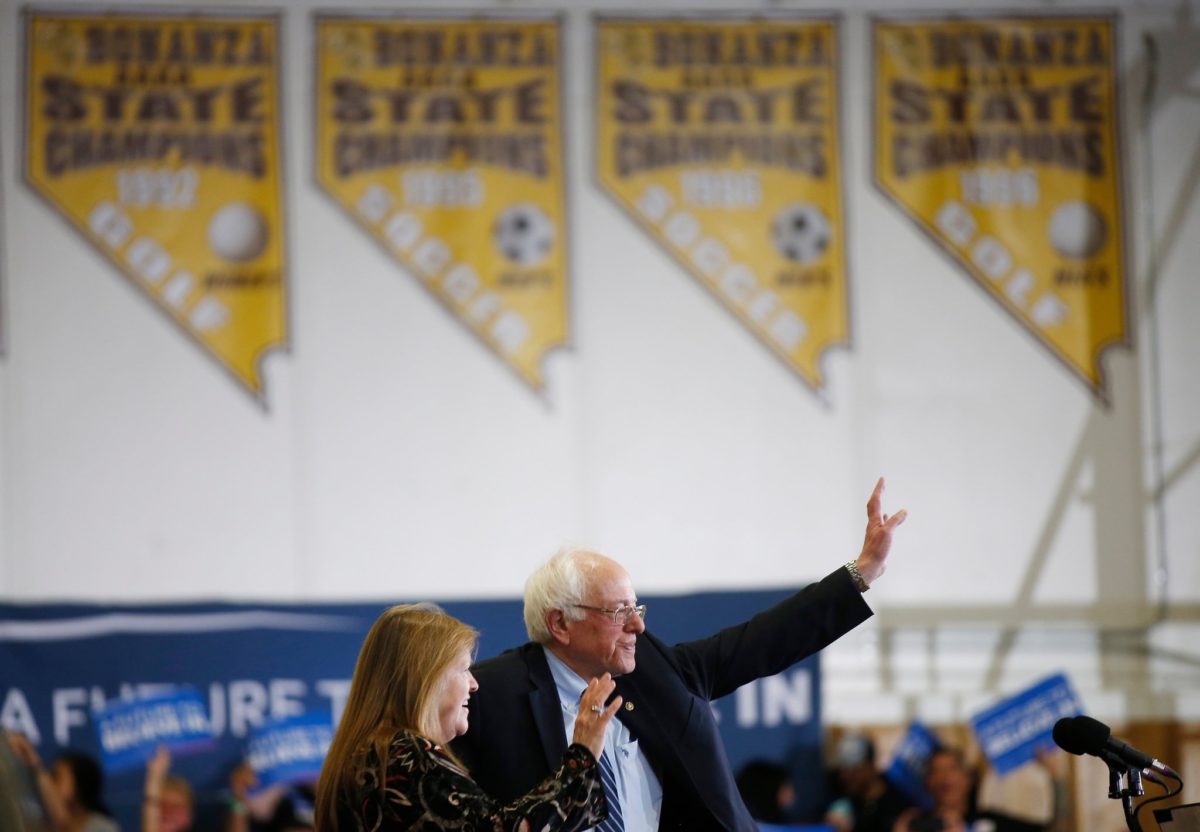The New York Times and Other Elites Attempt to Stem Growing Demand for Universal Health Care

Bernie Sanders’ improbable success has put universal, publicly financed health care back on the national agenda. But as popular demand for truly universal health care grows, political and media elites are closing ranks in an attempt to scare the public out of demanding change.
Yesterday The New York Times ran an article trotting out elites’ two favorite narratives. Both are incredibly disingenuous, and say more about the political agendas of the people spreading the narratives than they do about health care.
The first narrative is that publicly financed health care is economically infeasible. The Times cites a grand total of just three economists who question the costs laid out in Sanders’ health care plan. The three economists the Times cited are absolutely overwhelmed by the 106 U.S.-based economists who signed an open letter last year in support of public health care financing. That letter stated, “As economists, we understand that universal, publicly financed health care is not only economically feasible but highly preferable to a fragmented market-based insurance system. … We support publicly and equitably financed health care at federal and state level.”
By focusing just on taxation and the federal budget rather than the costs of the whole health care system, The Times is obfuscating the fact that we already pay enormous health care costs to private insurance companies in the form of premiums, deductibles and other fees—costs that would be eliminated by public financing. It also ignores the very real financial and human costs borne by everyone who foregoes needed care because they’re uninsured or because insurance companies put up cost barriers that keep people from getting treatment. Every single country that finances health care publicly does so far more efficiently than the United States. And an in-depth study of the State of Vermont’s financing options revealed last year that financing universal health care even on the state level is not only possible, but financially and economically advantageous.
The second narrative The Times pushes is that universal health care isn’t politically feasible. They cite two economists who make this claim, but give no explanation as to why economists have any more authority to make political pronouncements than anyone else. And amazingly, both of these economists actually say that despite their political assessments, they think universal, publicly financed health care would be a much better financing system than the market-based system we have now.
If elites are arguing that no president could muscle through legislation for truly universal health care, they’re absolutely right, but they’re missing the point. This isn’t about Sanders or other politicians. Enacting truly universal health care means changing what’s politically possible, and that takes a social movement. It was organizing by workers, women, African Americans and others that brought us women’s suffrage, the 40-hour work week, Social Security, Medicare, Medicaid and the Civil Rights Act, and there’s reason to believe we are on the brink of major social changes again. Look around. People are fed up, and movements are growing.
The infeasibility narratives pushed by The New York Times and other elites say much less about health care than they do about elites’ agendas and the incredible historical moment we are living through. For decades, we’ve all been told that if we work hard, we’ll succeed. But millions of people are struggling in a very real way, and aren’t buying the myth of trickle-down economics anymore. Let’s not let a small cadre of political and media elites scare us into accepting the way things are. Let’s stand up for universal publicly, financed health care not only because it’s sensible, but because it’s right.
